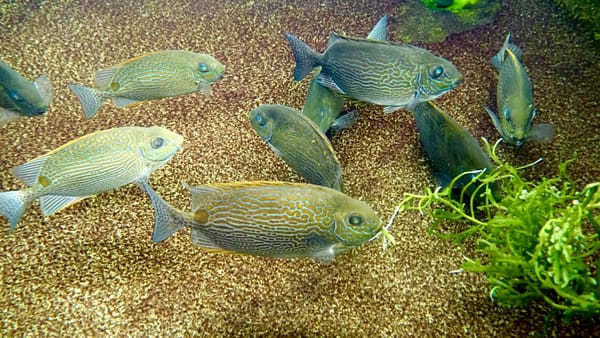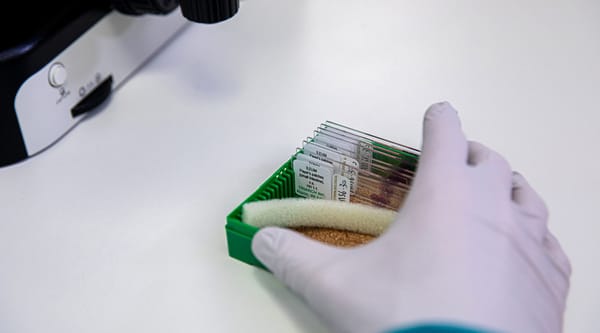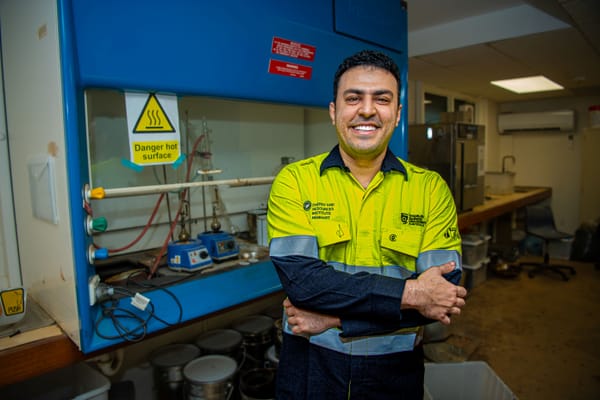ECU studies health benefits of fasting and exercise during chemotherapy
Researchers from Edith Cowan University (ECU) are investigating the impact of dietary restriction and exercise on women undergoing chemotherapy to treat breast cancer.

First published by Edith Cowan University
Researchers from Edith Cowan University (ECU) are investigating the impact of dietary restriction and exercise on women undergoing chemotherapy to treat breast cancer.
"We want to evaluate the effectiveness that exercise, and a fasting mimicking diet have on the immune system in patients that are undergoing chemotherapy, because we know that a part of the efficacy of chemotherapy relies on the immune system," ECU PhD student Ms Cristina Crespo Garcia said.
Cancer is a leading cause of death worldwide, accounting for nearly 10 million deaths in 2020 alone. Treatment often includes combinations of surgery, radiotherapy, and/or systemic therapy like chemotherapy, immunotherapy, or hormonal treatments.
Ms Crespo Garcia said the clinical trial being undertaken at ECU follows on from preclinical studies, which have shown that dietary restriction and exercise promote systemic changes that could help to restore immune system function through several mechanisms, including an enhanced infiltration and function of immune cells that attack tumours and a decrease of cells that weaken the immune cells and protect tumours, leading to a reduction in tumour volume.
In addition, dietary restriction and exercise training in mice have been shown to enhance the efficacy of chemotherapy. In human studies there is also emerging evidence that dietary restriction and exercise can impact the immune system towards a more antitumoral profile.
It is widely established that anti-tumour immune responses contribute to the success of chemotherapy agents.
"It has been shown in studies involving animals, that those animals that participate in fasting have a healthier immune system with more immune cells. Moreover, when you fast, the levels of glucose, insulin and some growth factors decrease, so our healthy cells activate protection mechanisms.
"They stop proliferating as much and enter into a protection and maintenance mode. This mode could assist cells to remain protected from the toxicity of the chemotherapy. Of course, that does not mean that the cells won't suffer any damage during chemotherapy, but it would help to reduce toxicity," Ms Crespo Garcia said.
In contrast, cancer cells, unable to adapt their high metabolic demands to the nutrient-scarce environment, become less capable of managing additional stress from treatment, making them more susceptible to chemotherapy's toxicity, enhancing its efficacy. Importantly, animal studies have shown that this increased efficacy of combining fasting with chemotherapy is also due to enhanced infiltration of antitumoral immune cells into the tumours.
Dietary restrictions include caloric restriction and fasting regimens. Caloric restriction is defined as a reduction in total daily energy intake by 15% to 30%, without changing the macronutrient ratio, while fasting includes various eating regimens, including water-only fasting or a restriction of over 50% of the usual calorie intake, lasting between 24 hours and several days.
Fasting mimicking diets, which are plant-based, low-calorie, low-protein, and sugar-free, last four to five days and replicate some effects of water-only fasting.
As for exercise, keeping active could limit chemotherapy toxicity in highly perfused organs such as brain, bone marrow, heart, lungs and kidneys by increasing the blood perfusion in muscles, and hence, the volume for chemotherapy distribution. Furthermore, exercise-induced increase of blood irrigation may help to deliver drugs to tumours, Ms Crespo Garcia said.
She noted that in certain types of cancer, such as breast, colorectal, or prostate cancer, being physically active after the diagnosis is associated with up to 40% survival rates.
"It would make sense that exercising would assist the body in several ways, as humans did not evolve being as physically inactive as we are nowadays. There are a significant number of studies that show exercises increases the quality of life in cancer patients, as well as psychosocial outcomes, while also reducing some adverse events of the chemotherapy."
Researchers claim exercise controls tumour progression through effects on tumour intrinsic factors such as cell growth rate, metastasis, and via modulation of systemic factors such as the immune system that can influence several cancer hallmarks in the tumour microenvironment. Studies in animals have showed that the immune system is a substantial contributor to the anti-cancer effects of exercise.
For the clinical trial being undertaken, study participants will be doing both aerobic and resistance training exercises, potentially benefitting from improved cardiovascular fitness as well as increased muscle mass.
The research has been published in the Exercise Immunology Review.




